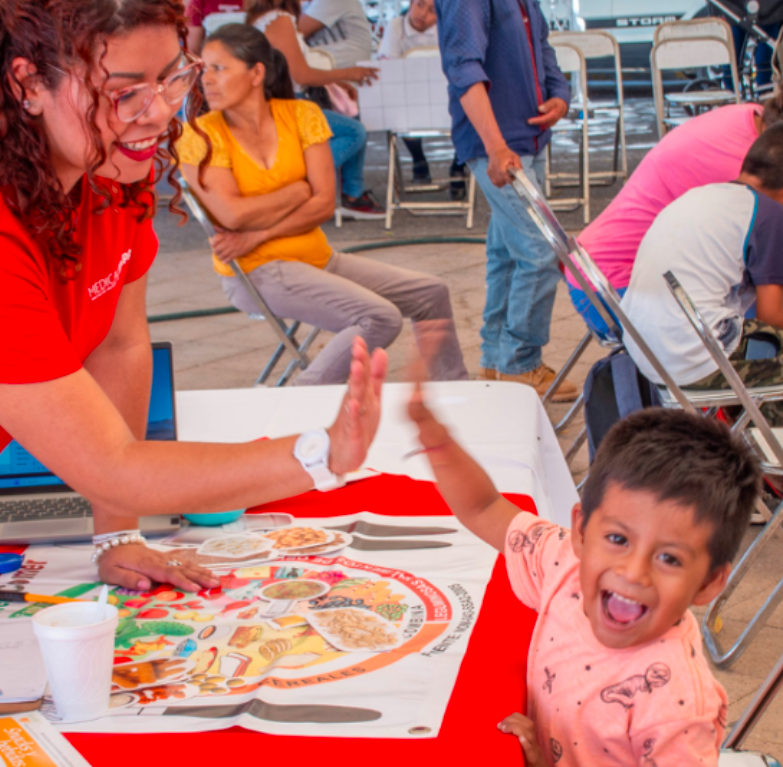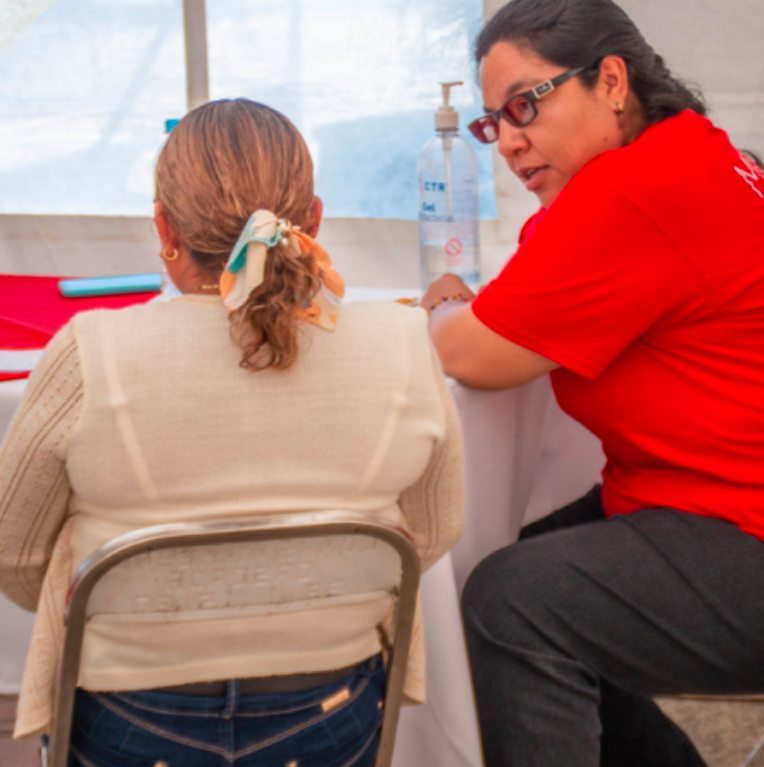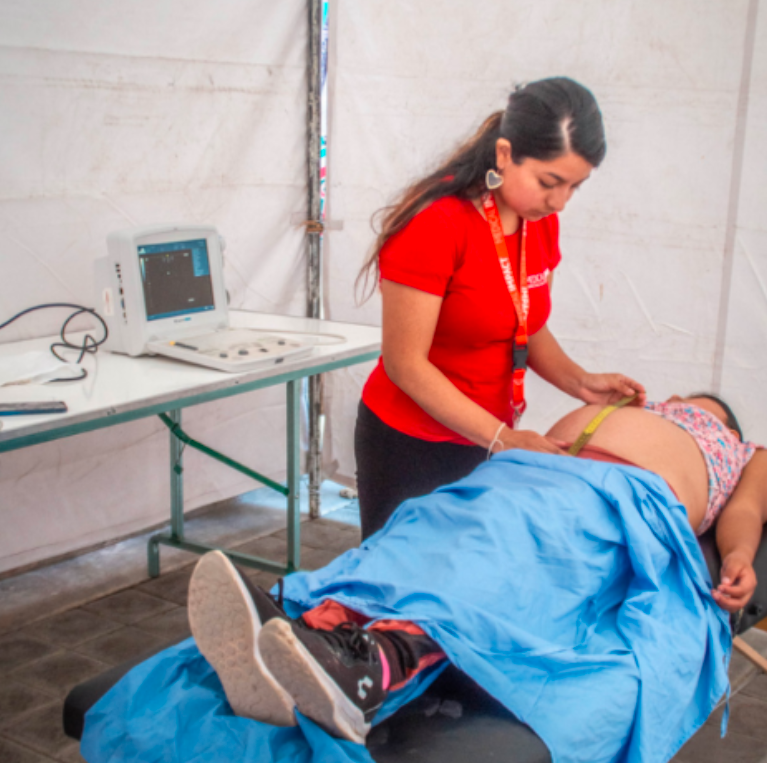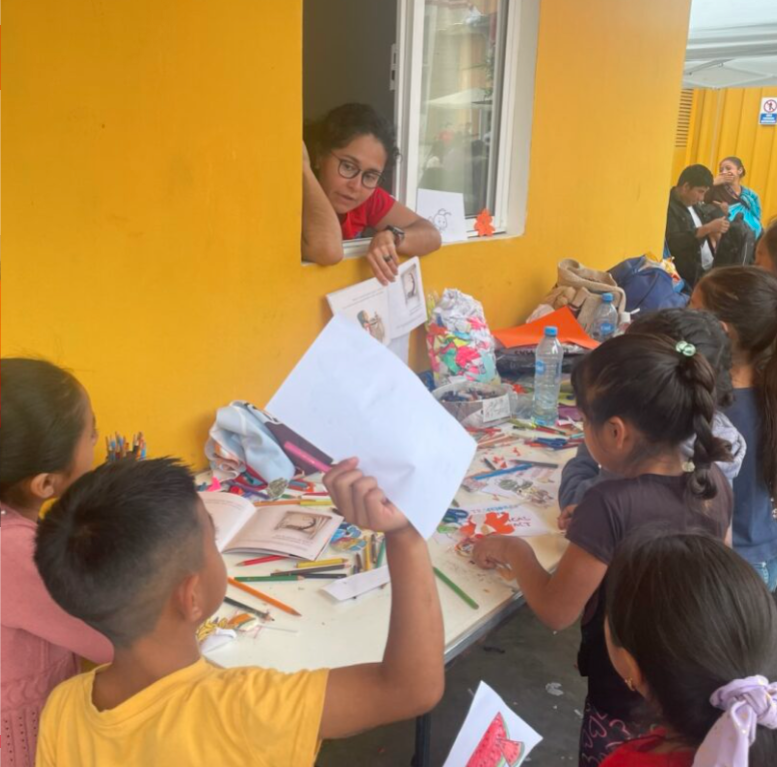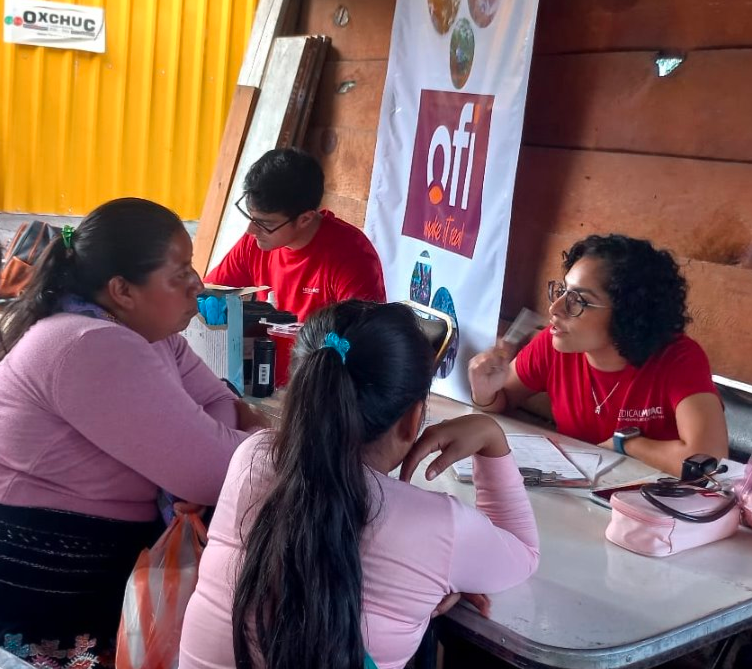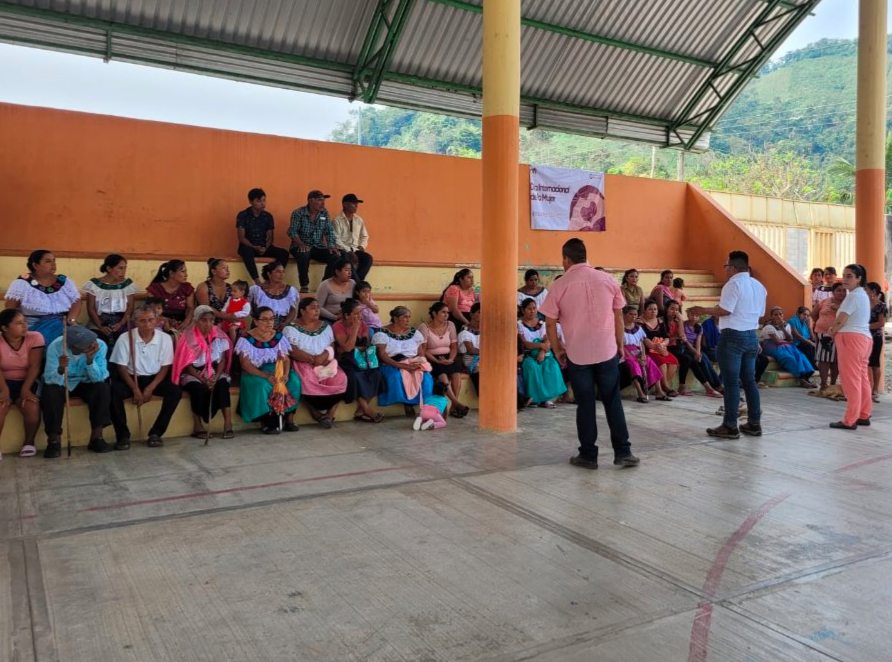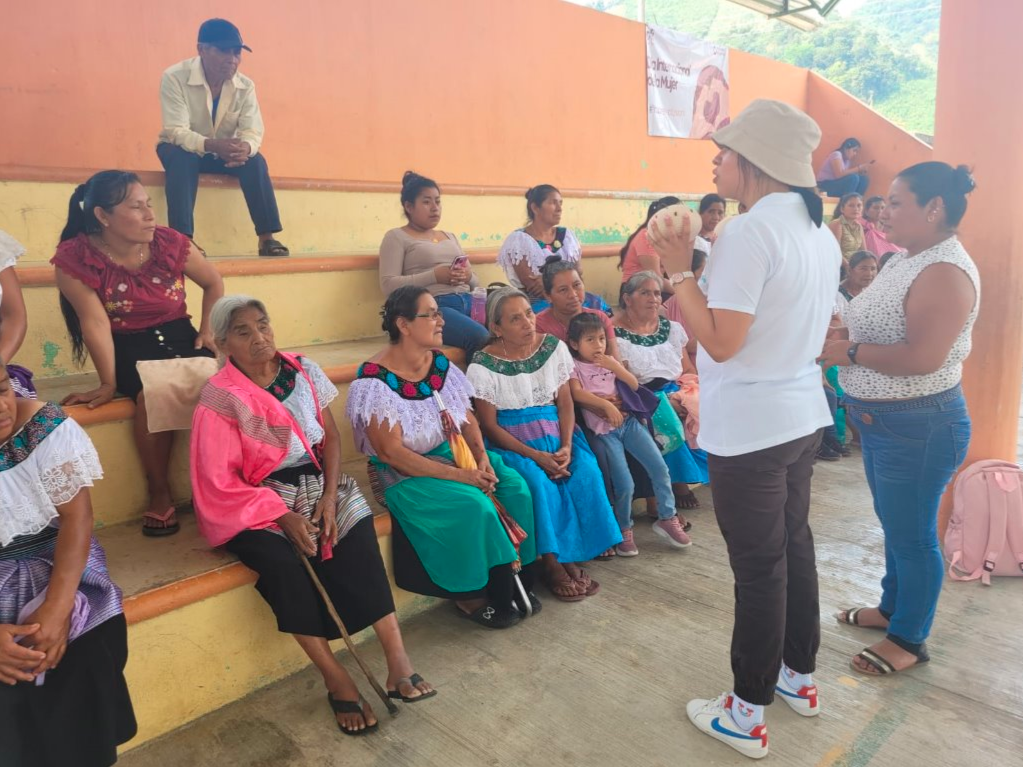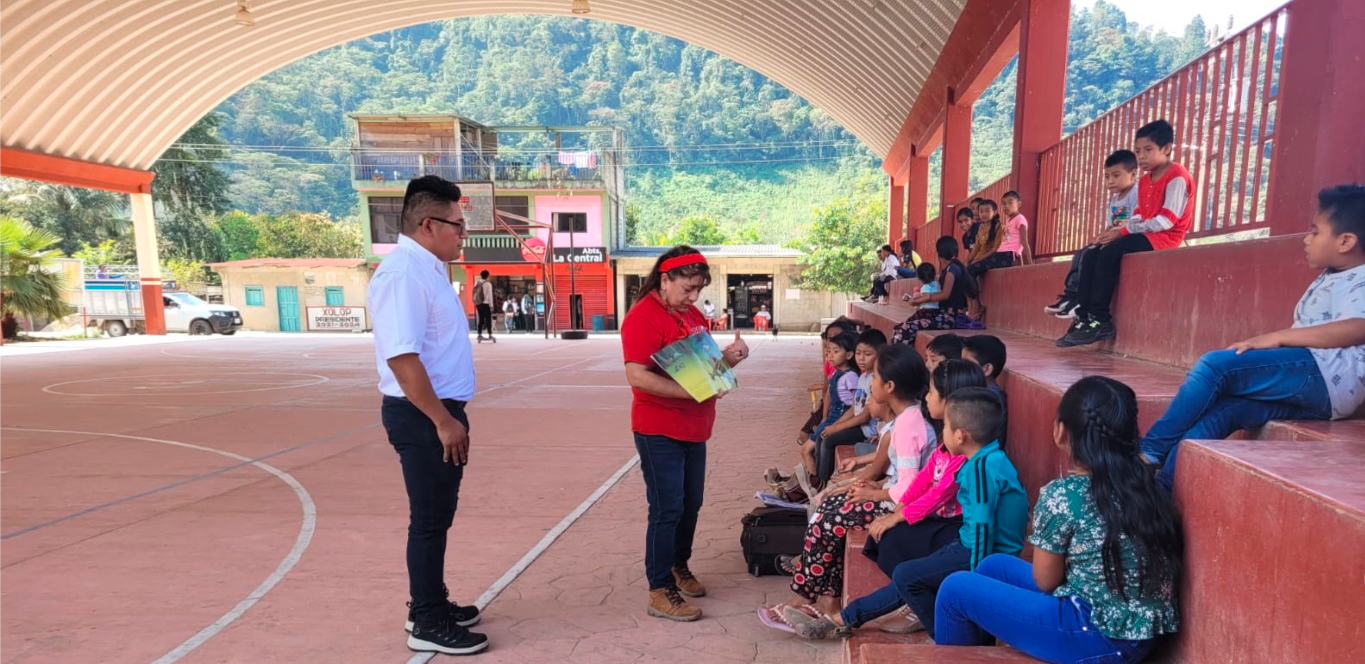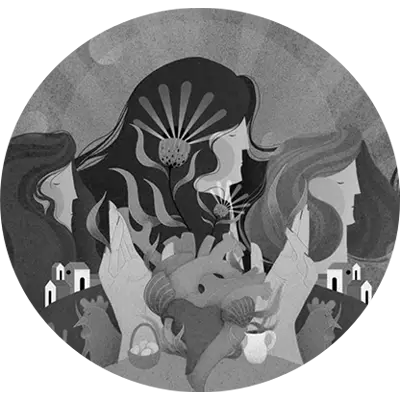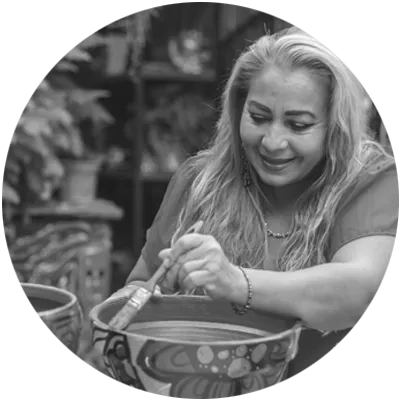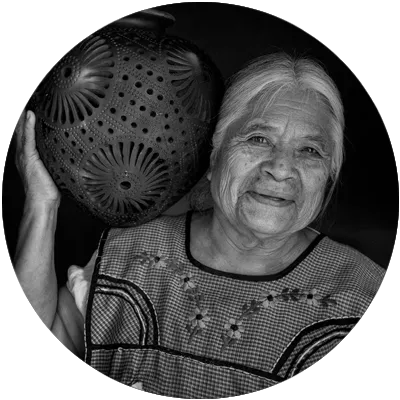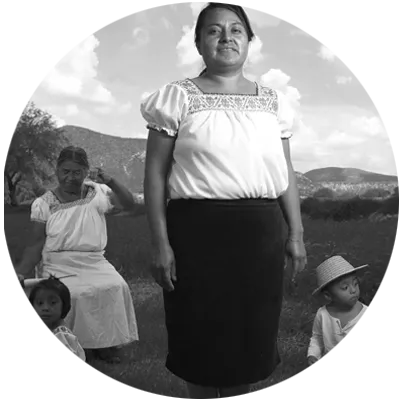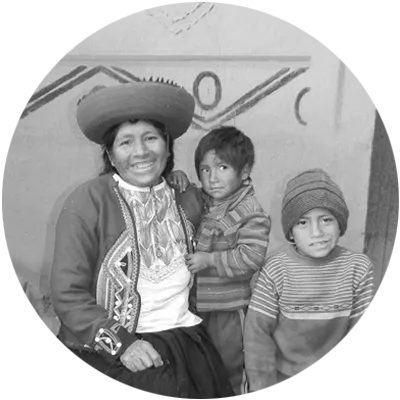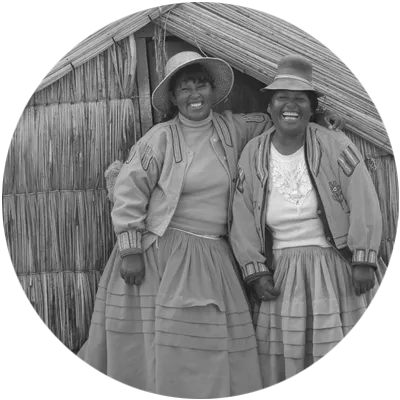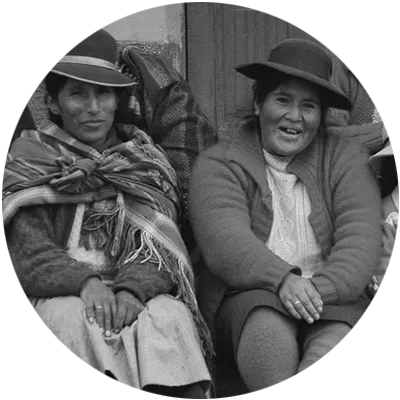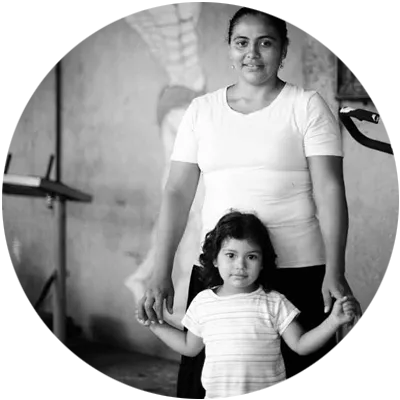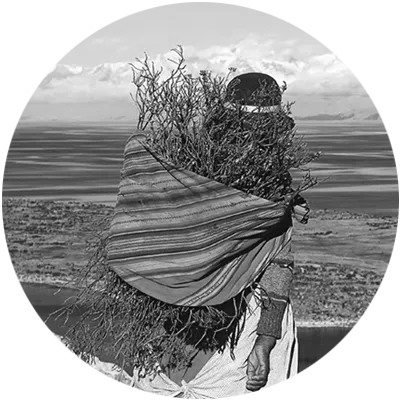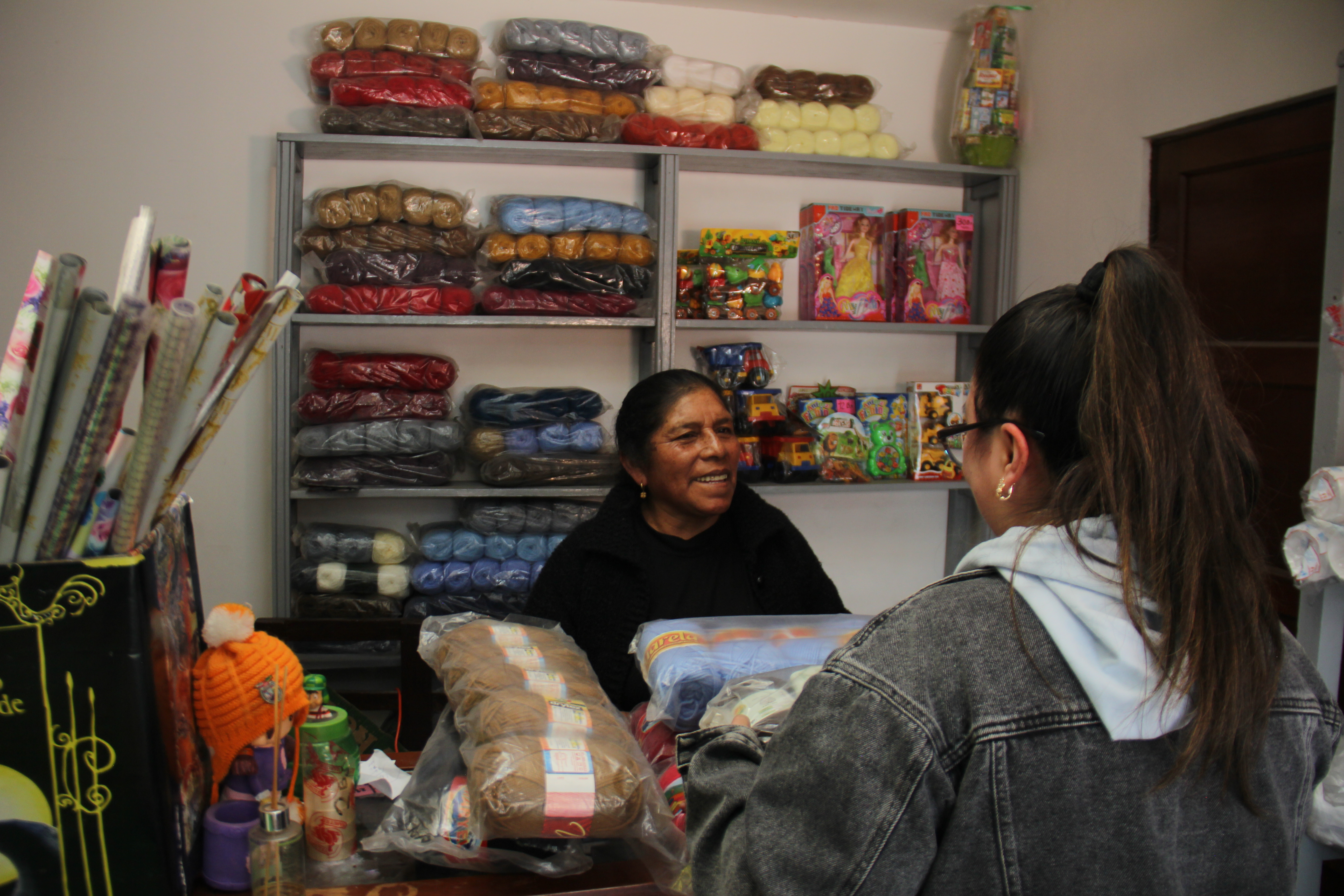March was an exciting month in terms of our work in southeastern Mexico: not only did we expand our health coverage in Chiapas through a multidisciplinary brigade through which we reached 483 people (361 women and 122 men), but we achieved this thanks to our partners, Starbucks and Medical Impact.
In just four days, we visited the villages of Juxalja, in Tenejapa, and Tzobojitle Jotoaquil, Centro Chich, and Chaban, in Chilon; and with staff trained in medical care and health education, we were able to provide more than 2,400 services including multidisciplinary consultations, deworming, pap smears, delivery of medications, etc.
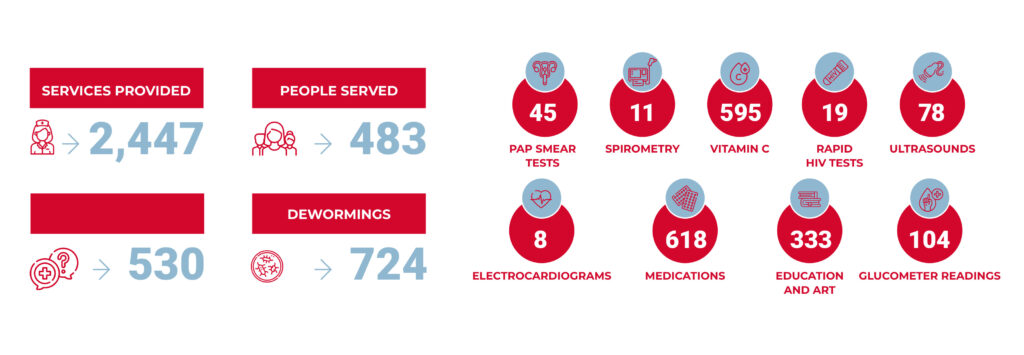
Pharmacy, rapid HIV testing, nutrition, psychology, imaging, rehabilitation, PAP application, education and art, and deworming modules were installed in each locality; the deworming one being especially important in communities with access difficulties given the lack of adequate drainage systems and water contamination, which is why deworming material adapted to the needs of each family was provided.
The four days left valuable findings that serve all organizations working with vulnerable populations, so that the impact can be increasingly greater and better:
- The limitations of these communities in accessing healthcare services are related to stigma, discrimination, and communication barriers due to speaking another language, so working with interpreters is essential.
- Health education is a powerful tool to reach these communities through an intercultural model, and not through an imposition that invalidates their traditional practices.
- Male chauvinism, systemic violence, and the taboo that exists about sexual and reproductive health represent major barriers for women to access health services, so special attention must be paid when addressing these issues.
- Parasite infections are a constant problem in areas where access to clean water is limited. It is important to work on actions for the prevention of these diseases without hurting the family economy.
- Diseases linked to coffee cultivation—the main activity in the area—were found in the people attended, afflictions such as cancerous lesions, skin problems due to contact with various substances and sun exposure, as well as chronic lower back pain.
- Among the nutritional diagnoses made, irritable bowel syndrome, low weight and anemic syndrome in children related to eating habits were very frequent.
- The vast majority of the reasons for psychological consultation were anxiety disorders related to family problems, domestic violence, and high workloads.
More health brigades this semester
March was health month for Pro Mujer and, in addition to those already mentioned, we brought training and health services to more Mexican women and communities.
On March 8th, International Women’s Day, we carried out a national education campaign thanks to which, through our chatbot on Sexual and Reproductive Health (SRH) and our training for health professionals, we reached more than 500 people. In this activity, the Technological Institute of Huichapan, the Technological University of Tulancingo, and the Humanist University joined forces.
Our commitment will continue between April and June, months in which we will train 30 health promoters from the Trickle Up organization in San Cristóbal de las Casas, Chiapas, and Huatulco, Oaxaca; we will strengthen the capacities of local organizations for the promotion of SRH in communities as well as begin the implementation of training for 70 health promoters, or Community Health Workers.
